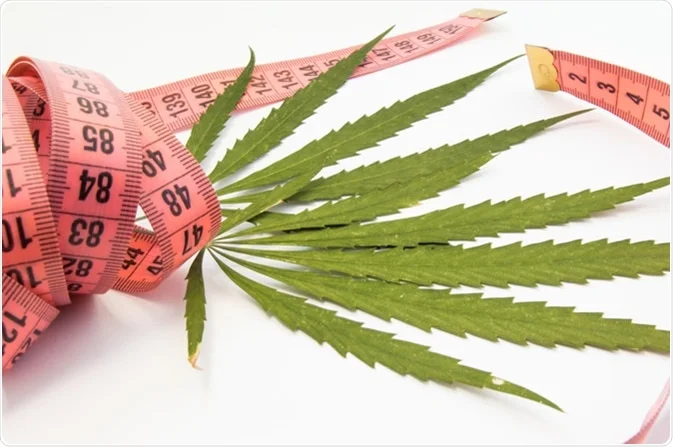I can’t tell you how many times I’ve heard this from patients: “I’d love to try medical cannabis, but I’m already struggling with my weight—I really don’t want to gain more.” It’s a totally valid concern, and honestly, one I used to wonder about myself. But here’s the surprising part: research actually suggests the opposite. People who regularly use cannabis often have lower BMIs, slimmer waistlines, and even better fasting insulin levels than those who don’t. Lately, there’s been a growing conversation about cannabis being part of a healthy lifestyle—alongside eating well, staying active, and getting good sleep. So how does that make sense? Let’s dig into how cannabis might really be affecting weight and metabolism.
How What You Eat—and How Much—Impacts Weight Loss
Let’s be real—the average Western diet is kind of a mess. It’s loaded with sugar, refined carbs, and processed foods. Not only does that spike our blood sugar, but it also throws off the balance of essential fats in our bodies. Ideally, we should have a pretty even ratio of omega-6 to omega-3 fatty acids—something close to what our hunter-gatherer ancestors had, around 1:1 or 3:1. But today? That ratio can hit 20:1. And that imbalance plays a big role in weight gain, inflammation, insulin resistance, and heart disease.
Here’s where things get really interesting. Omega-6 fats actually help produce compounds in our bodies called endocannabinoids—specifically AEA and 2-AG. These interact with CB1 and CB2 receptors, part of our body’s endocannabinoid system, which controls things like appetite, metabolism, and energy balance. When there’s too much omega-6, it can overstimulate the CB1 receptor, which ramps up hunger, messes with metabolism, and leads to weight gain.
Cannabis also interacts with the same receptors—especially CB1. THC, the main compound that gets you high, binds to CB1, which explains the infamous “munchies.” That effect can actually be really helpful for people who need to gain weight, like cancer or HIV/AIDS patients dealing with appetite loss or wasting.
But here’s the twist: regular cannabis users don’t typically gain more weight. In fact, studies show they tend to have lower BMIs, better insulin levels, and healthier waistlines. One theory is that with ongoing cannabis use, the CB1 receptor starts to “cool down” or become less sensitive—what’s known as down-regulation. That could help normalize appetite, boost satiety signals from the gut to the brain, and support a healthier metabolism overall.
And then there’s CBD—the non-intoxicating part of the cannabis plant. It seems to do the opposite of THC when it comes to appetite. It might even help reduce it. On top of that, early research suggests CBD could help the body create more brown fat, which actually burns calories instead of storing them. Pretty amazing, right?
There’s even some research pointing to a potential synergy between cannabis and omega-3 supplements. Together, they may help restore a healthier omega-6 to omega-3 balance and play a role in managing obesity. There’s still a lot more to learn, but as cannabis becomes more accepted and better studied, we’ll hopefully get clearer answers.
In the meantime, if you’ve been hesitant to try medical cannabis because of concerns about weight gain—you’re not alone. But the truth is, it might actually support your weight and metabolic health in some surprising ways. And if it helps you avoid more harmful medications? That’s definitely worth considering.
Which Cannabinoids and Strains Might Support Weight Loss? Here’s What We Know So Far
You’ve probably heard that THC—the part of cannabis that makes you feel “high”—can also make you crave snacks, especially sweet or fatty foods. And yep, the munchies are real. But here’s something kind of cool: cannabis can actually make food taste sweeter, which means you might feel satisfied with less. Suddenly, that bowl of fruit starts looking really good.
But THC isn’t the only cannabinoid in the spotlight. There’s another one called THCv, and it works a bit differently. In small amounts, THCv can actually block the same CB1 receptors that THC activates—those are the ones responsible for boosting appetite and making everything smell and taste amazing. So instead of making you hungrier, THCv may actually help suppress your appetite and even tone down the psychoactive effects of THC.
CB1 receptors are key players in how your body handles energy—how it stores fat, manages hunger, and balances metabolism. When THC lights up these receptors, it enhances your sense of smell and taste, which is why you might find yourself devouring a bag of chips. But with strains higher in THCv, that effect might be more balanced. Some popular strains with higher THCv content include Durban Poison, Girl Scout Cookies, Doug’s Varin, Dutch Treat, Tangie, and Pineapple Purps.
As for the best way to use cannabis for this kind of support—there’s no one-size-fits-all answer. Whether you prefer smoking, vaping, edibles, or oils, the key is to choose what feels right for you and your body.
And there’s more: both THCv and CBD are being looked at for their potential to help with diabetes—both Type 1 and Type 2. Early research suggests they might support pancreatic function, help regulate blood sugar levels, and reduce insulin resistance. CBD, in particular, seems to play a role in how we process carbs, possibly helping the body handle sugar more efficiently.
Exploring the Role of Medical Cannabis in Weight Loss
Some of the reasons cannabis might help with weight loss are pretty simple to understand. For a lot of people, using cannabis can reduce pain and inflammation, making it easier to get moving and be more active, which naturally burns more calories. It can also help with stress and anxiety, and when we’re stressed, our bodies release cortisol—a hormone that makes it easier to gain weight.
Another thing cannabis seems to help with is sleep. Better sleep means less stress, and having more energy during the day can make it easier to stay active. These benefits help explain why some people notice positive changes when using medical cannabis. But it’s also worth wondering if this is more of a correlation than something directly causing weight loss. Plus, there are probably deeper, more complex factors at work that we don’t fully understand yet.
I’ve lost count of how many times patients have said, “I can’t use medical cannabis—I’m already overweight! I can’t afford to gain any more weight.” It’s a totally understandable concern. But here’s the thing—research actually suggests that people who use medical cannabis regularly tend to have a lower BMI, a smaller waistline, and lower fasting insulin levels compared to those who don’t use it. More and more folks are talking about how cannabis might play a role in living a healthy lifestyle, right alongside a good diet, exercise, and proper sleep. So how does that all fit together? Let’s take a closer look at how cannabis might affect weight and metabolism.


